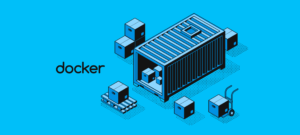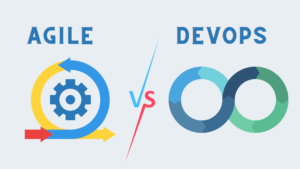Introduction:
DevOps has revolutionized the way software is developed, deployed, and maintained by promoting collaboration, automation, and continuous delivery practices. Effective collaboration lies at the heart of DevOps, enabling cross-functional teams to work together seamlessly towards common goals. In this article, we’ll explore the importance of collaboration in DevOps and discuss various tools and techniques that facilitate collaboration among development, operations, and other stakeholders.
The Importance of Collaboration in DevOps: DevOps emphasizes breaking down silos and fostering collaboration between development, operations, quality assurance, security, and other teams involved in the software delivery process. Collaboration enables teams to share knowledge, align objectives, and work towards delivering high-quality software products efficiently and reliably. By promoting communication, transparency, and accountability, effective collaboration in DevOps leads to faster delivery cycles, reduced lead times, and improved overall productivity.
Tools and Techniques for Effective Collaboration in DevOps:
- Version Control Systems (VCS): Version control systems such as Git, Subversion, and Mercurial play a crucial role in enabling collaboration among developers by providing a centralized repository for managing source code. VCS allows teams to work concurrently on the same codebase, track changes, merge code branches, and resolve conflicts efficiently. By using branching strategies like GitFlow or Feature Branching, teams can collaborate on new features or bug fixes while maintaining code stability and traceability.
- Collaboration Platforms: Collaboration platforms like Slack, Microsoft Teams, and Mattermost facilitate real-time communication and collaboration among team members across different locations and time zones. These platforms offer features such as instant messaging, file sharing, video conferencing, and integration with other DevOps tools, enabling teams to stay connected, share updates, and collaborate on projects seamlessly.
- Continuous Integration and Continuous Delivery (CI/CD) Pipelines: CI/CD pipelines automate the process of building, testing, and deploying software changes, allowing teams to deliver new features and updates to production quickly and reliably. Tools like Jenkins, GitLab CI/CD, and CircleCI enable teams to create CI/CD pipelines that integrate with version control systems, testing frameworks, and deployment platforms, facilitating collaboration between developers, testers, and operations teams throughout the software delivery lifecycle.
- Infrastructure as Code (IaC): IaC tools such as Terraform, AWS CloudFormation, and Ansible enable teams to define and manage infrastructure resources using code, allowing for consistent, repeatable, and automated provisioning of infrastructure. By treating infrastructure as code, teams can collaborate on infrastructure changes, version control infrastructure configurations, and deploy infrastructure changes alongside application code, reducing manual errors and improving deployment consistency.
- Issue Tracking and Project Management: Issue tracking and project management tools like Jira, Trello, and Asana help teams organize, prioritize, and track work items, tasks, and project milestones. These tools provide features for creating and assigning tasks, tracking progress, setting deadlines, and collaborating on project plans, enabling teams to stay aligned and focused on delivering value to customers.
- Knowledge Sharing and Documentation: Effective collaboration in DevOps also involves knowledge sharing and documentation to capture best practices, guidelines, and lessons learned. Tools like Confluence, Wiki.js, and Notion enable teams to create, share, and collaborate on documentation, runbooks, and knowledge bases, facilitating knowledge transfer and onboarding of new team members.
Best Practices for Effective Collaboration in DevOps:
To maximize the benefits of collaboration in DevOps, consider following these best practices:
- Foster a culture of collaboration, transparency, and continuous improvement across teams.
- Encourage cross-functional teams to work together towards common goals and share ownership of the entire software delivery process.
- Establish clear communication channels, norms, and guidelines for sharing updates, seeking feedback, and resolving conflicts.
- Embrace automation to streamline repetitive tasks, reduce manual effort, and improve collaboration between development, operations, and other teams.
- Invest in training and development programs to enhance team members’ skills, knowledge, and collaboration capabilities.
- Continuously solicit feedback, measure collaboration effectiveness, and iterate on processes and tools to drive continuous improvement.
Conclusion:
Effective collaboration is essential for achieving success in DevOps and delivering high-quality software products efficiently and reliably. By leveraging tools and techniques that facilitate communication, automation, and knowledge sharing, teams can collaborate effectively across the entire software delivery lifecycle and drive business value through faster delivery cycles, reduced lead times, and improved customer satisfaction. With a focus on fostering a culture of collaboration and embracing best practices, organizations can unlock the full potential of DevOps and achieve greater agility, innovation, and competitiveness in today’s fast-paced digital landscape.





